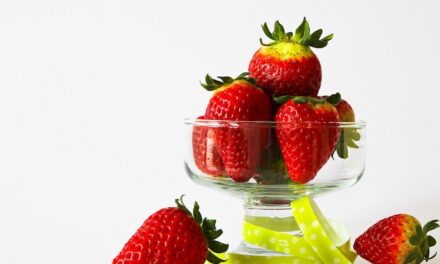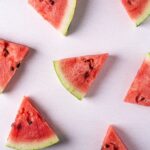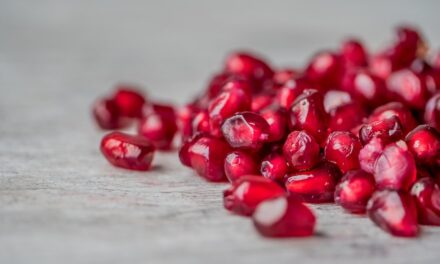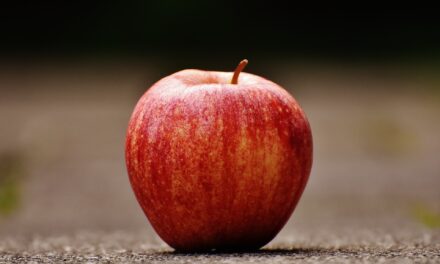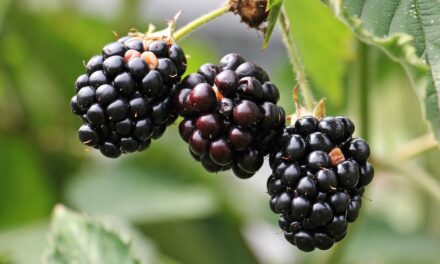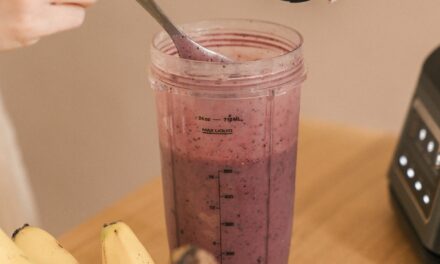
Benefits of Eating Watermelon Seeds
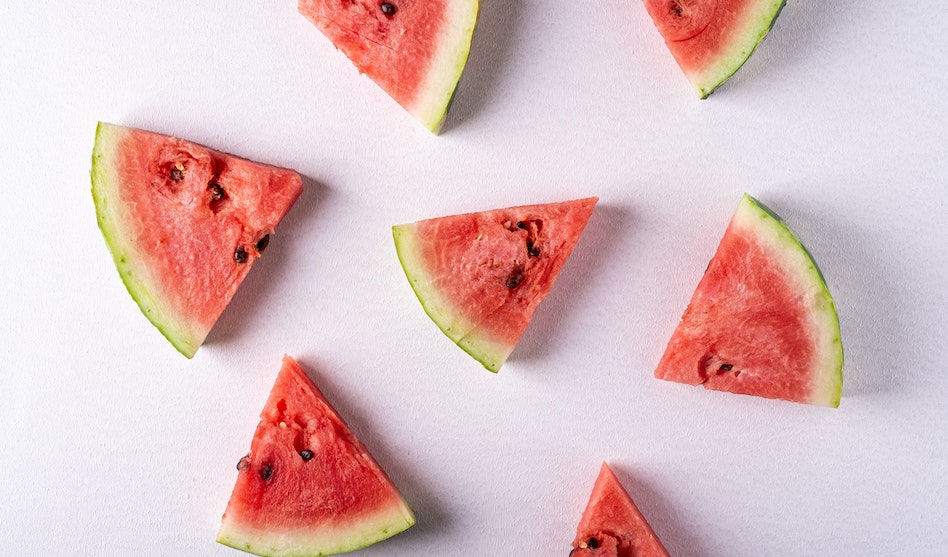
6 Benefits of Eating Watermelon Seeds: How to Prepare Watermelon seeds -2023)
When you think of watermelon, you imagine a red, squashy, juicy fruit, but the seeds usually don’t come to mind.
People probably remove these black seeds from the fruit and consume them. But did you know these black seeds have some wonderful properties? These tiny seeds are super nourishing and healthy.
Let’s figure it out!
Watermelon is an amazing hydrating fruit as it contains 92% water and is enriched with several minerals and vitamins. Its seeds are super-rich in many nutrients.
These seeds are low in calories and rich in micronutrients such as zinc, magnesium, potassium and others.
Now a question arises:
How many watermelon seeds should I eat daily?
Just one cup of watermelon seeds gives your metabolism a boost and also provides essential nutrients to your body.
So, without further ado, let’s get started.
Here are six scientifically proven health benefits of eating watermelon seeds!
Nutritional Value of Watermelon Seeds:
1. Low calorie:
Watermelon seeds are low in calories. Just a handful of seeds weighing about 4 grams contains only 23 calories.
2. Magnesium:
Magnesium is an essential nutrient found in watermelons, which are known for their metabolic activity. Watermelon seeds are rich in magnesium and promote a healthy metabolism in the body. The National Institute of Health recommends adults get 420 mg of this mineral daily.
3. Zinc:
These seeds are a good source of zinc. It helps boost the immune system, helps digestion, and keeps your nervous system healthy.
4. Iron:
Watermelon seeds are an excellent source of iron. According to the National Institute of Health (NIH), the daily requirement for iron is approximately 18 mg per day.
How to Eat Roasted Watermelon Seeds:
You can eat watermelon seeds raw, sprouted, or roasted. In any form, these seeds are so delicious and healthy.
Watermelon seeds are usually nourished after sprouting.
Benefits of Eating Watermelon Seeds:
Scientists claim that consuming watermelon seeds could help boost your general health in the following ways:
- Improves skin health
- Helps in strengthening the hair
- Improves heart health
- Lowers blood sugar levels
- Boost the immune system
- Help prevent osteoporosis
1. Improves skin health:
The watermelon seeds help to cleanse your skin as they contain high amounts of vitamin C and antioxidants. Its oil is generally used in various beauty products to treat acne and early signs of aging.
Watermelon seeds are also a great source of magnesium, which helps improve your overall skin appearance.
The anti-inflammatory properties and the rich magnesium content of watermelon seeds boost your skin’s health by acting as a moisturizer for dull, dry skin.
Now a question arises:
Does watermelon boost collagen?
Watermelon, in addition to being a tasty fruit, may also be used as a skin-care treatment.
The rinds could help calm your skin’s inflammation, while the seeds boost collagen in your body.
Summary
Watermelon seeds are said to be a natural skin-care product since they can boost your overall skin appearance.
Zinc found in the seeds of watermelon can also help slow down the aging process because of its ability to promote protein synthesis and repair.
2. Helps in strengthening the hair:
Everyone wishes for a healthy head of hair. So, why not consume watermelon seeds to achieve this?
Watermelon seeds are full of essential proteins like iron, magnesium, and copper, which are known to improve the quality of your hair.
These seeds help to strengthen your hair and boost hair growth. Manganese in the seeds helps to prevent hair fall and damage.
Now a question arises:
Does watermelon give strength?
Citrulline, an amino acid found in watermelon, may help improve exercise performance and reduce muscle soreness. It’s also available as a supplement.
One review found that regular consumption of citrulline for at least 7 days improved aerobic performance by promoting the body’s production of nitric oxide.
Summary
Watermelons are not only sweet, but they may also help with hair growth. The vitamins and minerals help to nourish your hair and scalp, keeping your hair healthy.
However, more research is required!
3. Improves heart health:
Watermelon seeds are high in monounsaturated and polyunsaturated fatty acids, which can benefit your heart health in a variety of ways.
Studies suggest that these seeds are useful in protecting against heart attack and stroke.
They also contain a high amount of magnesium, which keeps your heart healthy and regulates your blood pressure as well.
What’s more, the anti-inflammatory and antioxidant properties of watermelon seeds make them a good food for heart health along with zinc’s key role in regulating calcium movements in your heart.
Now a question arises:
Is watermelon good for your arteries?
It’s great for your heart!
Watermelon’s potassium content can make blood arteries more flexible, boosting blood flow and relieving stress on the heart.
Summary
Watermelon seeds are a good source of magnesium, which is essential for heart health. They also contain other vitamins and minerals that can help improve heart health.
4. Lowers blood sugar levels:
If you’re suffering from blood sugar changes, including these magical seeds in your diet will help maintain your blood sugar levels effectively.
Magnesium found in watermelon also helps to regulate the metabolism of carbs, which directly impacts blood sugar levels.
What’s more,
If you have diabetes, you understand the importance of watching what you eat and monitoring your blood sugar levels.
Consuming watermelon seeds is the perfect way to prevent these fluctuations in a very short interval of time.
Now a question arises:
Do watermelon seeds lower blood sugar?
Studies suggest that watermelon seeds contain high amounts of magnesium which can help manage insulin sensitivity and reduce blood sugar levels.
Summary
Watermelon seeds have been shown to help lower blood sugar levels in people with diabetes.
This is because the seeds contain a compound called magnesium, which has been shown to help regulate blood sugar levels.
5. Boost the immune system:
These seeds are a good source of zinc. They provide around 26 percent of the daily value in one ounce, or 4 percent DV in one large handful (4 grams).
Watermelon seeds also contain several vitamins and minerals, which can help enhance the immune system.
Now a question arises:
What disease does watermelon prevent?
These effective seeds are well-known for their ability to treat a wide range of diseases. Lycopene is an antioxidant that may help prevent cancer, heart disease, and age-related vision problems.
Summary
Watermelon seeds are packed with nutrients such as iron and minerals, which can help boost immune functions.
These seeds also contain vitamin B, which aids in this process. However, more research is required!
6. To help prevent osteoporosis:
If you have weak bones or diseases like osteoporosis, try to incorporate watermelon seeds into your diet.
Watermelon seeds, which are high in magnesium, copper, and potassium, can help prevent bone diseases.
Now a question arises:
Does watermelon strengthen bones?
Consuming watermelon seeds has also been linked to improved cardiovascular function because it enhances blood flow via vasodilation (blood pressure relaxation) and is rich in potassium, which helps your body absorb calcium, resulting in stronger bones and joints.
Summary
Watermelon seeds are a good source of magnesium, which is essential for bone health.
Eating watermelon seeds may help prevent osteoporosis, a disease that causes bones to become weak and break easily.
How to Prepare Watermelon Seeds:
Seeds are the essential root of all fruits, since no fruit can exist without them.
We reviewed the benefits of watermelon seeds and how they might effectively improve our general health. But how is a normal person able to prepare watermelon seeds on their own?
Let’s make this easy!
Here are some steps on how to prepare watermelon seeds:
- Keep in mind that once matured, the watermelon will take up a lot of room
- It is best to let your watermelon move past its edible stage if you plan to keep seeds from it, because the seeds do not continue to ripen after the watermelon has been harvested..
- So, the first step in preparing watermelon seeds for planting is to make sure they are old enough to harvest.
- When the tendrils around your watermelon have totally withered and dried out, they are ripe for harvest.
- After the watermelon is ripe, you can extract the seeds.
Cut the melon and dig out the seeds. Put the seeds in a large bowl and fill it with water.
The good (viable) seeds will sink to the bottom, while the bad seeds will float with the majority of the pulp.
- Scoop out the floating seeds and pulp and dispose of them. After rinsing off any sticky pulp, place the viable seeds in a cloth or newspaper.
- Spread the seeds out in a sunny location to dry for about a week. That’s it!
The Bottom Line:
Watermelon seeds have several health advantages.
Despite having poor levels of some minerals and vitamins, they are significantly superior to potato chips and other harmful foods.
The amount of nourishment you get from watermelon seeds is mostly determined by how many you consume.
Because they’re little, you’ll need to consume a lot of them to reap the advantages. However, when compared to other snacks, watermelon seeds far outperform them.


